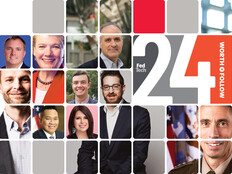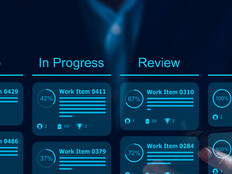Data has become one of the single most valuable currencies underpinning the revenue models of innumerable companies, promising efficiencies that have the potential to yield improved results across every sector.
For organizations whose primary function is the sharing of data, the infrastructure required to connect disparate sources may develop organically over time. For organizations focused on delivering services and managing programs, however, information needed for effective program management may remain isolated within the program, shared only as needed.
Given the focus on managing day-to-day services, defining intended outcomes and linking across programmatic activities is not always an operational imperative. But to collect information and not use it to its fullest potential is not just inefficient — it defies common sense.
To address these information siloes, the Department of Health and Human Services’ Data Initiative has been leading an effort to identify the challenges to data sharing.
MORE FROM FEDTECH: Find out what digital twin technology is and how it can help your agency.
Agenices Must Support Decisions with Evidence
For the first time in HHS history, the Data Initiative team made a systematic examination of data sharing practices across HHS agencies, which include the Centers for Disease Control and Prevention, the Food and Drug Administration and the National Institutes of Health.
The findings of our September 2018 report, “The State of Data Sharing at the U.S. Department of Health and Human Services,” describe processes that are less than perfect. They lack transparency and reliability, live within a difficult-to-navigate regulatory landscape, contain technical barriers that prevent easy information sharing and are affected by resource constraints that keep data sharing from becoming a priority.
But why should anyone outside those agencies care?
It’s not enough to acknowledge the importance of making decisions that are grounded in evidence. We all have a stake in a government where policy decisions and resource allocations are based on the best available evidence.
MORE FROM FEDTECH: Find out how federal IT leaders can adapt to accelerating technological change.
Regulations, Tech and Culture Impact How Data Is Collected and Used
As a physician and a data scientist, I care deeply about ensuring that the data collected by the department about the health of the nation is being used to deliver services in the most impactful way possible and designed to achieve success.
To address the challenges, all stakeholders must understand the current regulatory, technical and cultural considerations, and that addressing these will require a long-term commitment.
HHS is also not unique in these opportunities. Sharing what we have learned is important to ensure that we continue to learn from our partners and stakeholders, and not duplicate efforts.
Understanding an organization’s data is about much more than data alone. It provides an unprecedented view into the ways in which an organization operates. For HHS, this knowledge will be key as we enter the next phase of our journey — developing a vision for what information sharing at HHS should be.
We demand more from our health care systems, and push them to deliver more value, transparency and evidence-based care. HHS and other agencies must move in the same direction. Using the information we collect to make decisions is essential. Creating the foundation that allows this to happen is the most vital part of this journey.










